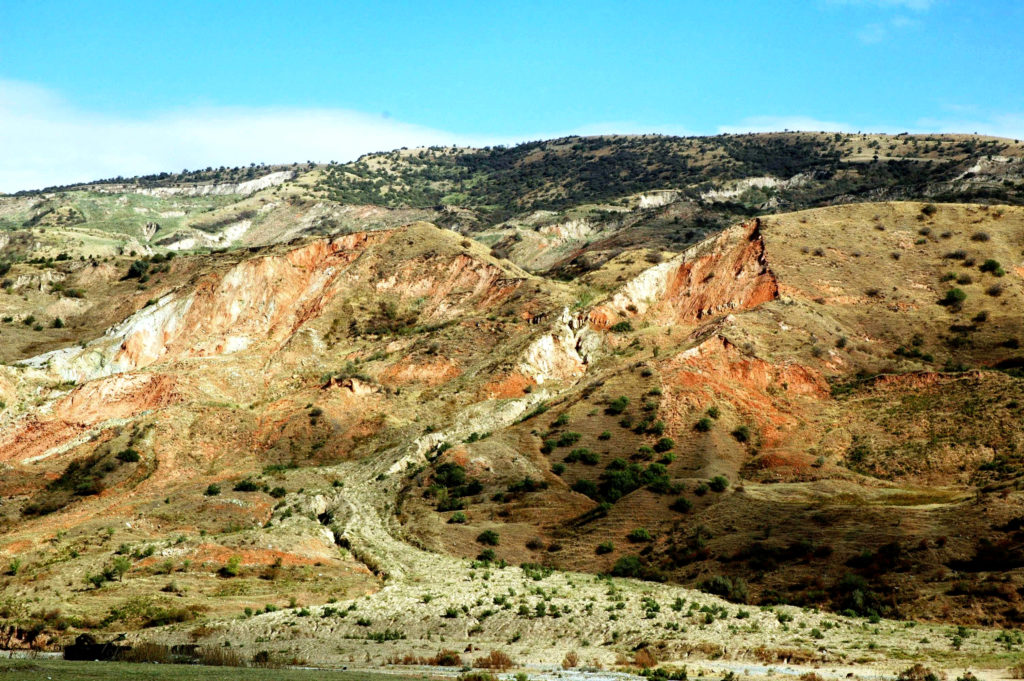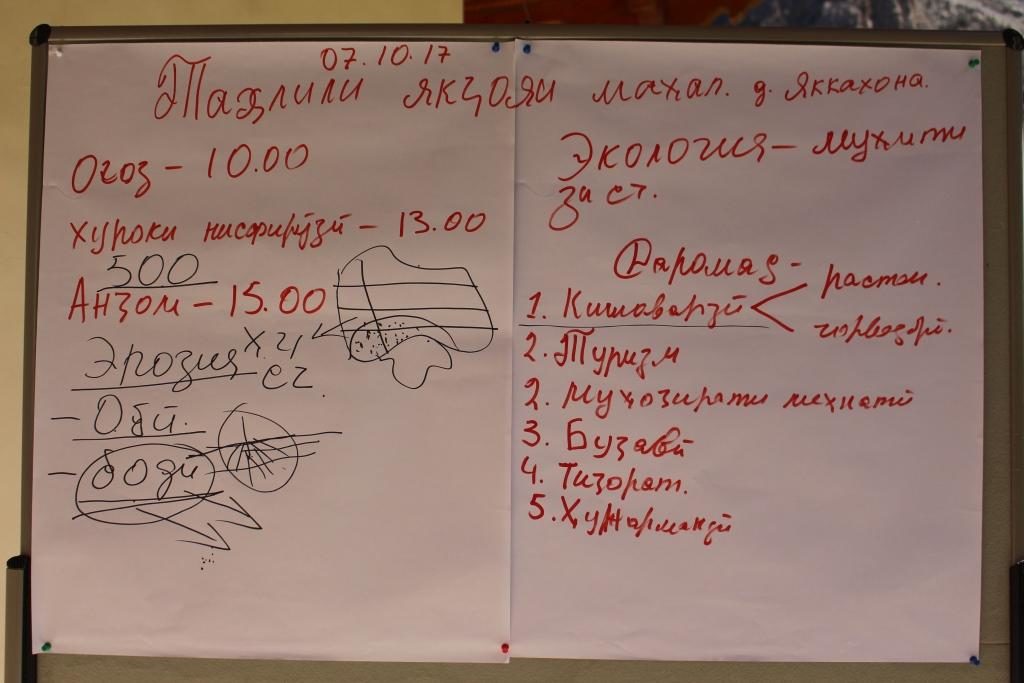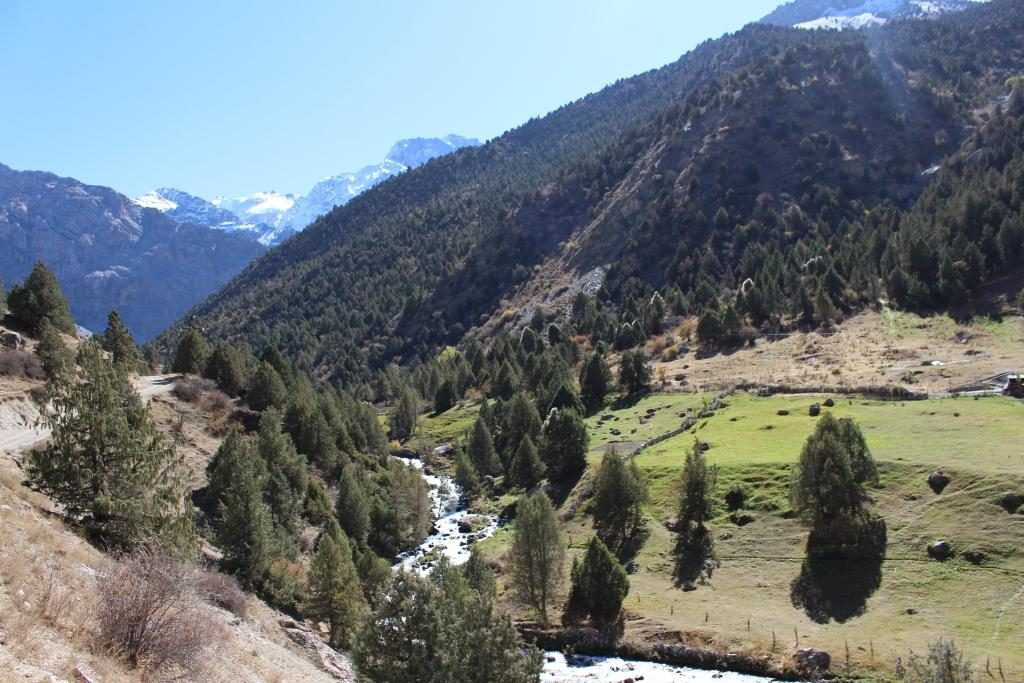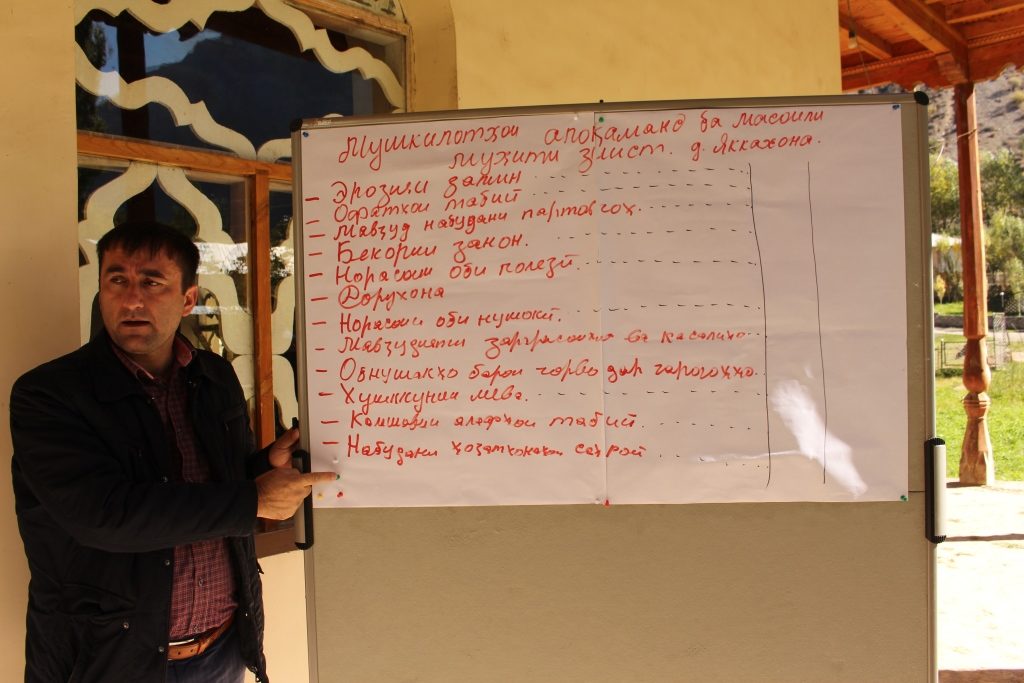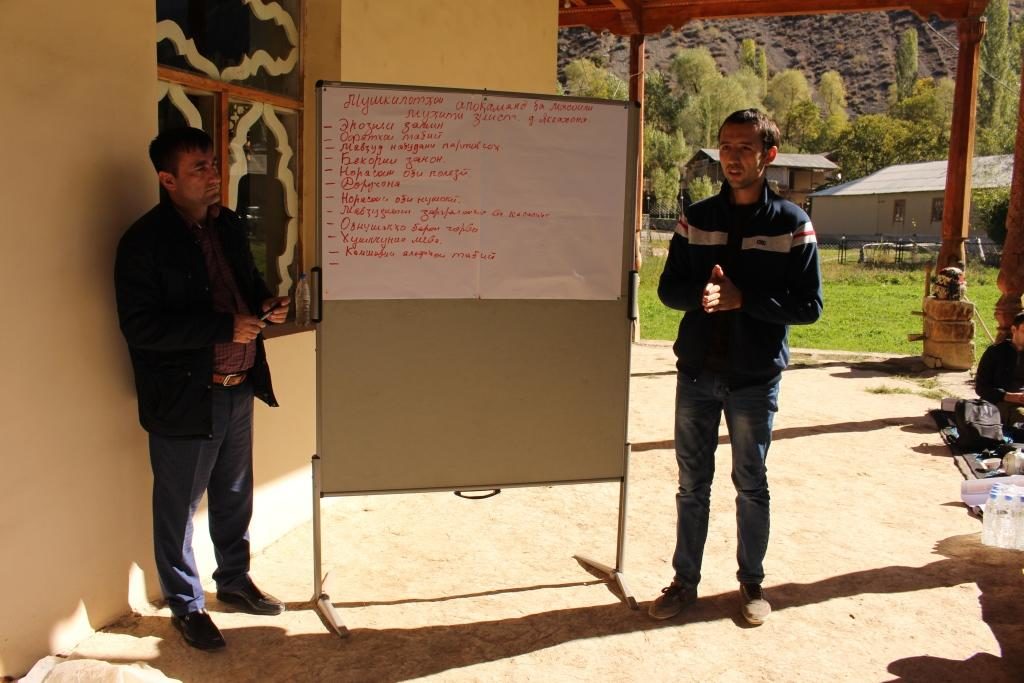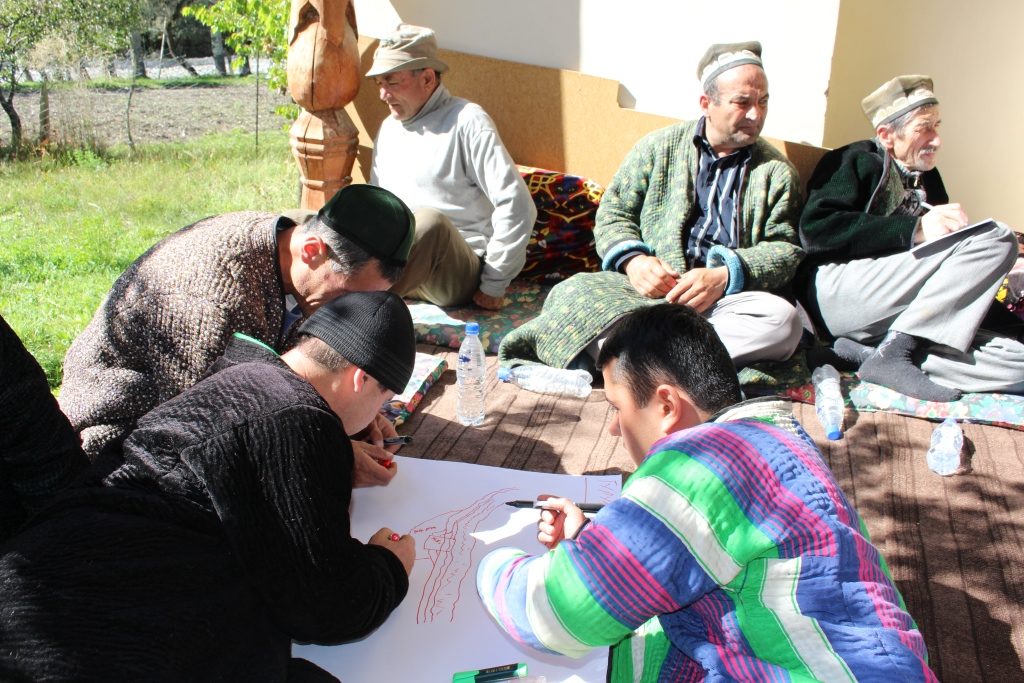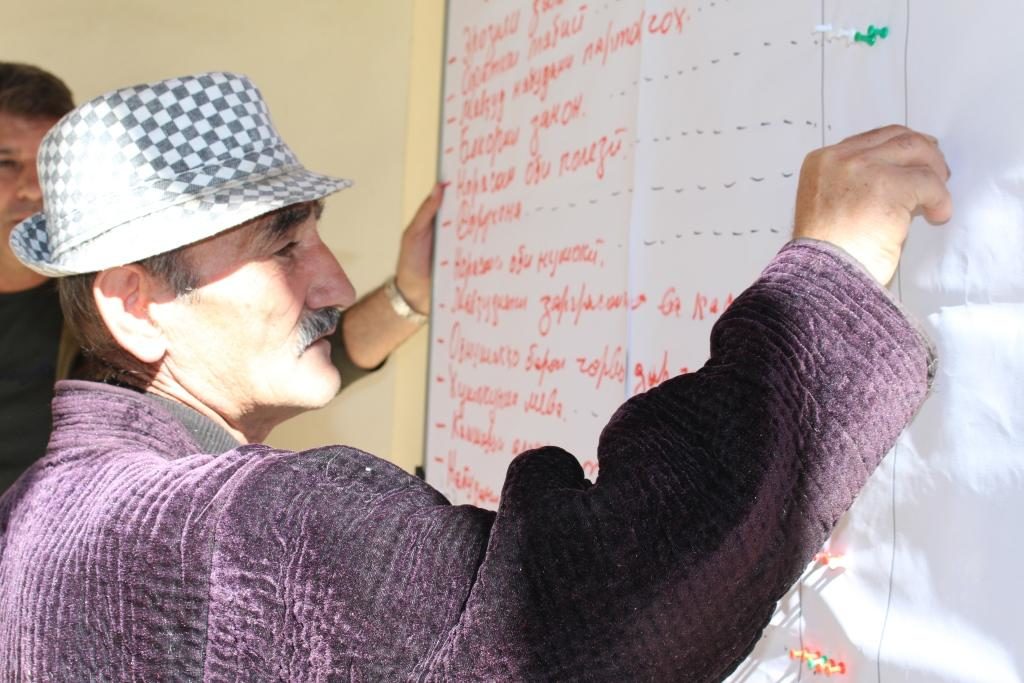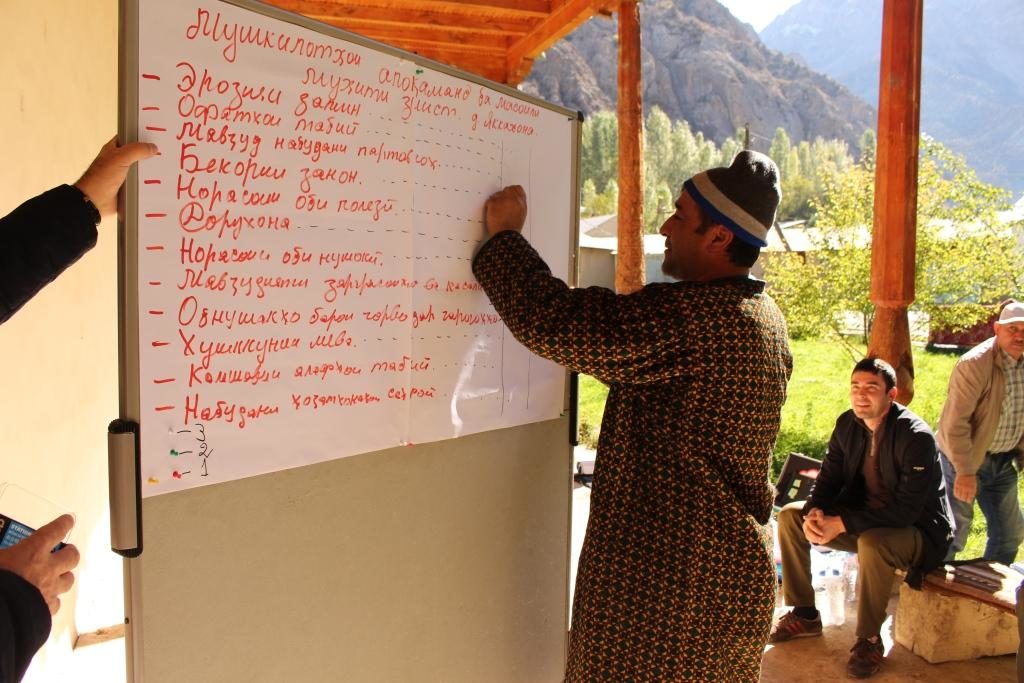Partners: State Committee for Environment Protection, CAMP Alatoo / CAMP Tabiat Public Foundation, Mountain Societies Research Institute of the University of Central Asia (UCA), Michael-Succow-Foundation, German Research Centre for Geosciences (GFZ), UNIQUE Forestry & Land Use GmbH
Project period: 2015-2020
The ecosystems in high mountainous regions of Central Asia are characterized by a unique diversity of flora and fauna. They provide local population with clean water, pasture, forest products, protect against floods and landslides, maintain soil fertility. However, the consequences of climate change coupled with unwise land use damage fragile mountain ecosystems and reduce their regeneration ability.
Therefore, people living in rural areas and directly depending on natural resources must adapt to adverse impacts of climate change. This can be done through a set of measures, known in the world practice as ecosystem-based adaptation (EbA) approach. Thanks to it, people can continue to use nature without harming the environment.
We are committed to helping national partner organizations in Kazakhstan, Kyrgyzstan and Tajikistan to test successful EbA approach and climate adaptation strategies, and integrate them into national policies. Our efforts are intended to promote a common understanding of advantages created by this EbA approach; broadening and strengthening of intra- and inter-sectoral collaboration and cooperation between the countries; and supporting the planning efforts of international development partners.
We work in two pilot watersheds in Kyrgyzstan and Tajikistan, with the support of official partners in implementing the project. They include CAMP Alatoo / CAMP Tabiat Public Foundation, Mountain Societies Research Institute of the University of Central Asia (UCA), Michael-Succow-Foundation, German Research Centre for Geosciences (GFZ), and UNIQUE Forestry & Land Use GmbH. We are also successfully cooperating with the World Wildlife Fund US (WWF US) and UNEP.
We started our work with a comprehensive assessment of the status of the most important ecosystems of the pilot regions; for this purpose we analysed possible changes in ecological conditions resulting from climate change and developed scenarios of possible climate change based on the vulnerability assessment.
Together with local communities, we are launching innovative processes of adaptation planning for climate change, during which we develop and test cost-effective strategies and appropriate measures. These include the efficient use of nature while maintaining and developing the ecosystem services provided to rural populations.
Typical elements in planning the ecosystem approach are the introduction of alternative sources of income and the sustainable management of forest, land and water resources. In this context, a strong emphasis is placed on human capacity building
Training sessions and seminars, and the study of successful international experience with the help of international experts, help local authorities, specialists of public sector institutions, and the local population to become familiar with the features of decision-making under conditions of a changing climate and to adapt these features to the local environment. A special range of adaptation measures is developed for the pilot villages, Siponj and Dardzomj in Bartang Valley of the Gorno-Badakhshan Autonomous Oblast (GBAO) of Tajikistan, affected by an earthquake in December, 2015, taking into account the seismological situation in the region. As a result of these efforts, people will be better prepared for climate change and natural disasters.
We hold consultations on climate for government officials in Tajikistan and Kyrgyzstan and supports national government authorities in conducting international negotiations on climate, including on prospective (Intended) Nationally Determined Contributions.
Based on the tested methods of economic activity in rural areas, we will promote the use of this knowledge by all three countries in the development of their national policies.[
ECO Lecture on Ecosystem-based Adaptation to Climate Change in Tajikistan
For more detailed information about the EbA project, please, follow the link.
Project publications: all project publications can be found on the EbA website and here in the Publications section.
